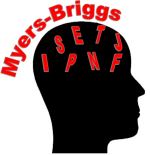Is the Myers-Briggs Test A Big Bunch of Nothing?
 Chances are you’ve taken the Myers-Briggs Personality Inventory – and if not you will likely do so at some point during your career.
Chances are you’ve taken the Myers-Briggs Personality Inventory – and if not you will likely do so at some point during your career.
It’s the most widespread personality test in the world, used by colleges, prospective employers and government agencies. It is touted as a valuable recruiting tool and a key predictor of job performance.
But a growing body of experts say the test is worthless.
“There’s just no evidence behind it,” says University of Pennsylvania psychologist Adam Grant in this Vox article. “The characteristics measured by the test have almost no predictive power on how happy you’ll be in a situation, how you’ll perform at your job, or how happy you’ll be in your marriage.”
Thinking, Feeling, Baloney?
The MBPI uses 93 questions to divide human behavior into 16 discrete categories, each identified by a four-letter code. From the Myers-Briggs website:
- Do you prefer to focus on the outer world or on your own inner world? (Extraversion/E or Introversion/I)
- Do you prefer to focus on the basic information you take in or do you prefer to interpret and add meaning? (Sensing/S or Intuition/N)
- When making decisions, do you prefer to first look at logic and consistency or first look at the people and special circumstances? (Thinking/T or Feeling/F)
- In dealing with the outside world, do you prefer to get things decided or do you prefer to stay open to new information and options? (Judging/J or Perceiving/P)
Blame It On Jung
The test emerged from the work of Carl Jung, whose landmark 1921 book Psychological Types theorized that human behavior can be broadly lumped into identifiable “types.” The operative word is theorized. Jung’s ideas were never subject to rigorous scientific scrutiny.
And even he warned that his types were approximate tendencies, not strict classifications. “Every individual is an exception to the rule,” he wrote.
Two decades later, a pair of Americans with no formal training in psychology – Katherine Briggs and her daughter Isabel Briggs Myers – shoehorned Jung’s principles into a series of two-choice questions.
Today, the MBPI is a big business. It generates millions of dollars for its parent company, career coaches and certified test administrators. It is used by the State Department, CIA and 89 of the Fortune 100 companies.
But most psychologists contend it’s a waste of time and money. Here are some of their objections:
- When it comes to human behavior, there are no absolutes. We all fall on different points along a spectrum. Jung was well aware of this, stating, “There is no such thing as a pure extravert or a pure introvert. Such a man would be in the lunatic asylum.”
- Most people fall somewhere in the middle of each category. Even so, they are shunted to one side or the other (Thinker or Feeler) much like those who put on the sorting hat in Harry Potter.
- The test has not been shown to be particularly effective at predicting job success.
- Half the people who take it a second time will get a different result.
- The test is designed to make people feel good about taking it. All the categories use flattering descriptions (performer, executive, nurturer) instead of negative ones (selfish, lazy, mean).
- The categories are vague enough so that most people can read aspects of their own personalities into whatever result is reached. Much like horoscopes and fortune cookies. This is called the Forer effect.
- Actual human traits are considerably more nuanced. They vary over time and depend on a host of factors, including our mood when we are being tested.
Some psychologists say newer tests like the Five Factor model – which measures a person’s openness, conscientiousness, extraversion, agreeableness and neuroticism – are better predictors of career success.
So what is the MBPI good for? Entertainment, say its critics. In that respect it is little better than a Magic 8 ball.
What do you say? Have you taken the MBPI? Did you find it accurate or useful?
Sources:
- Vox http://www.vox.com/2014/7/15/5881947/myers-briggs-personality-test-meaningless
- Malcolm Gladwell http://gladwell.com/personality-plus/
- Myers & Briggs Foundation http://www.myersbriggs.org/my-mbti-personality-type/mbti-basics/
- Workforce http://www.workforce.com/articles/at-60-myers-briggs-is-still-sorting-out-and-identifying-people-s-types
Jay Reeves a/k/a The Risk Man is an attorney who has practiced North Carolina and South Carolina. Formerly he was Legal Editor at Lawyers Weekly and Risk Manager at Lawyers Mutual. Contact him at jay.reeves@ymail.com




